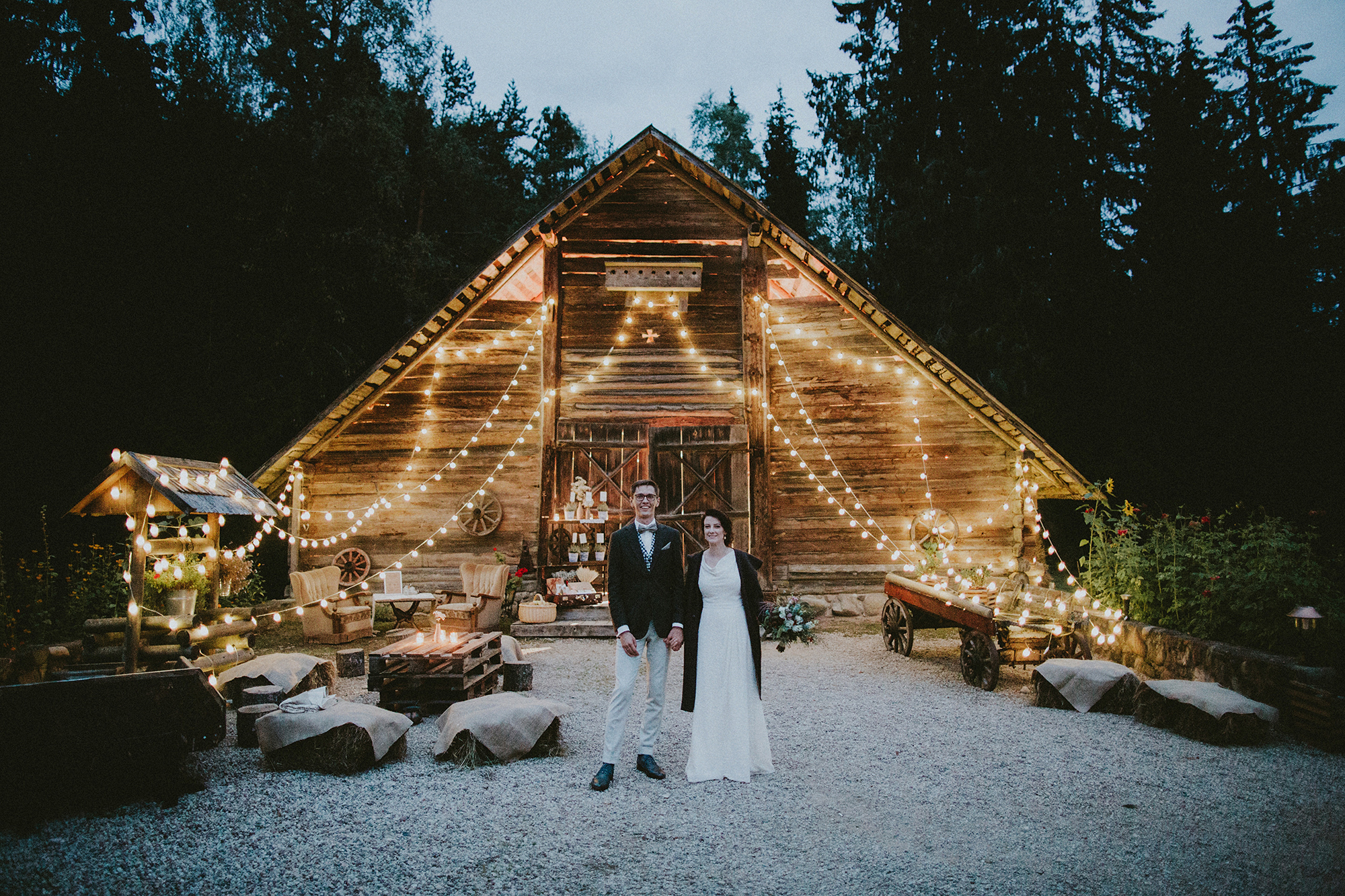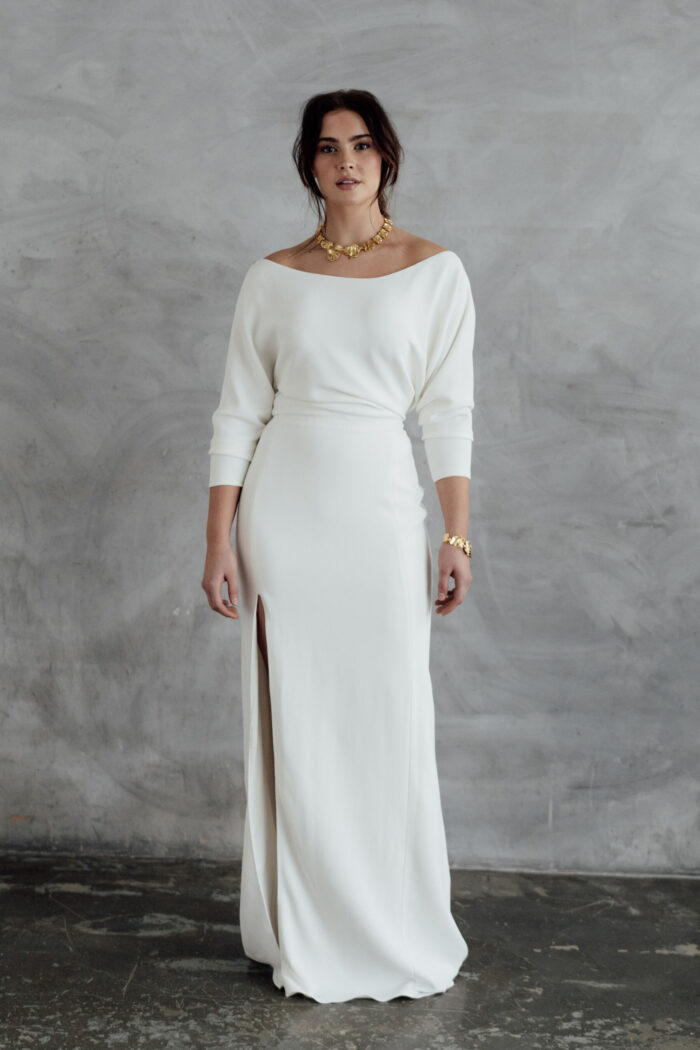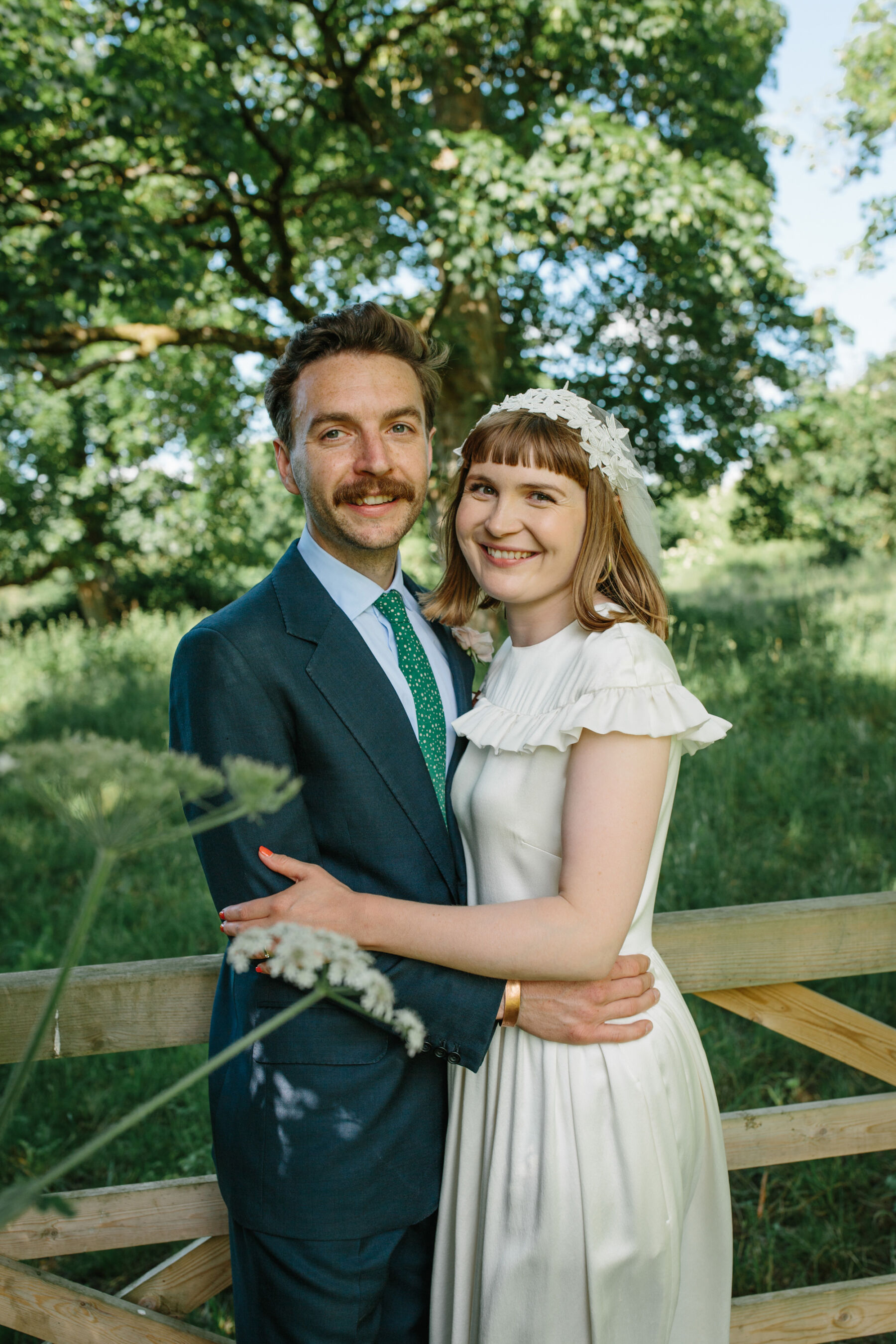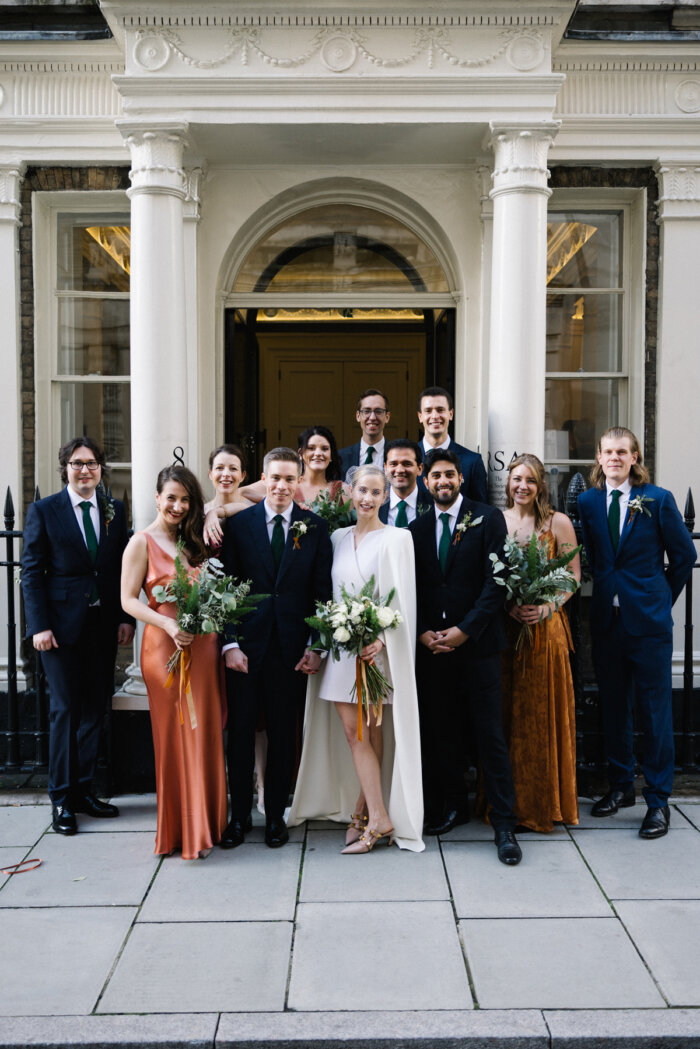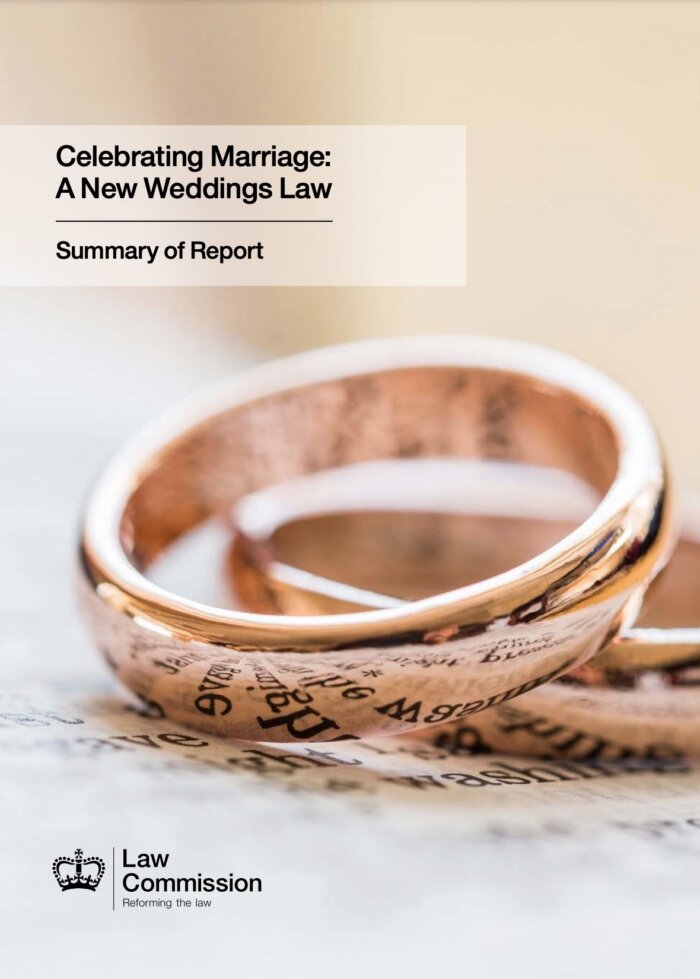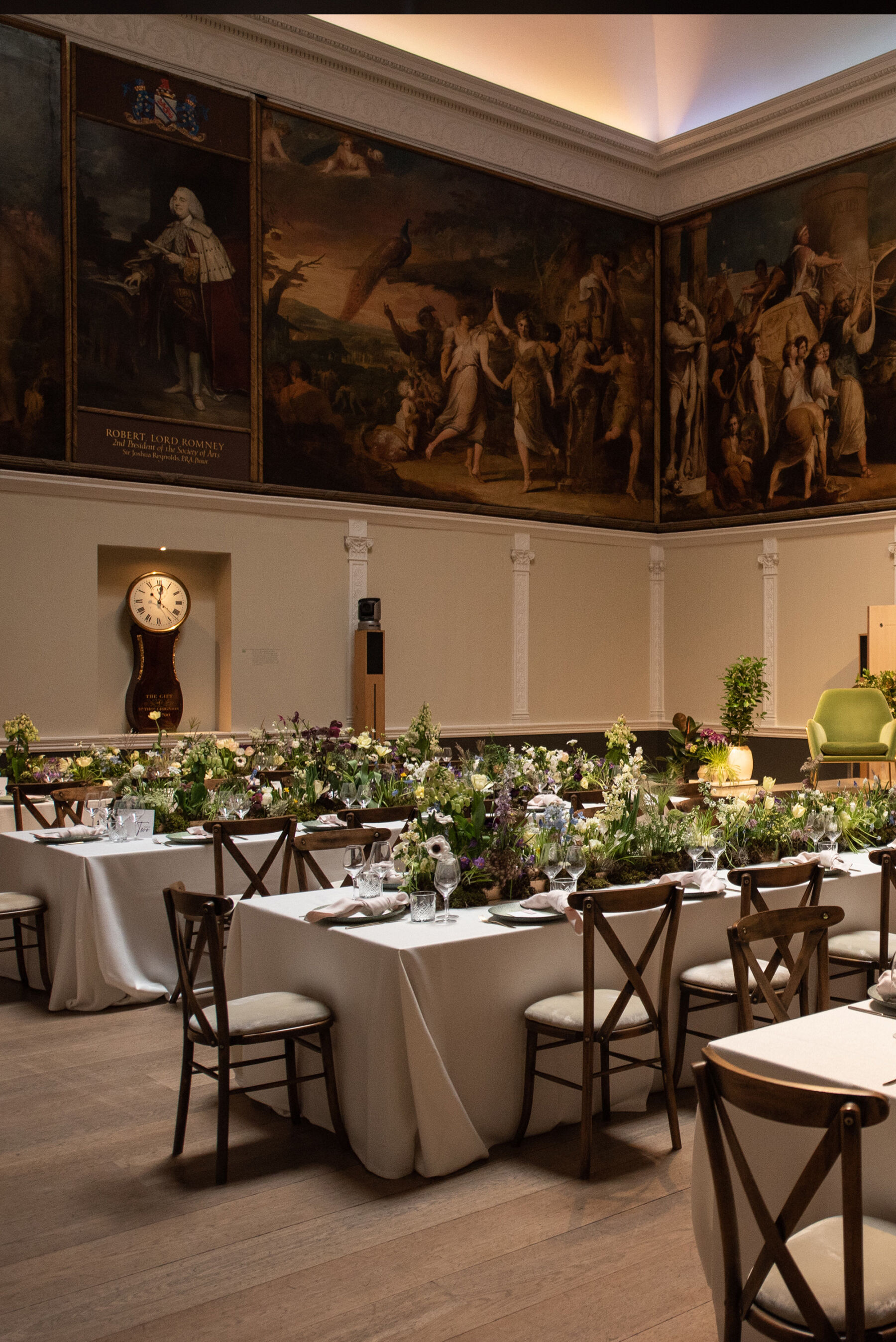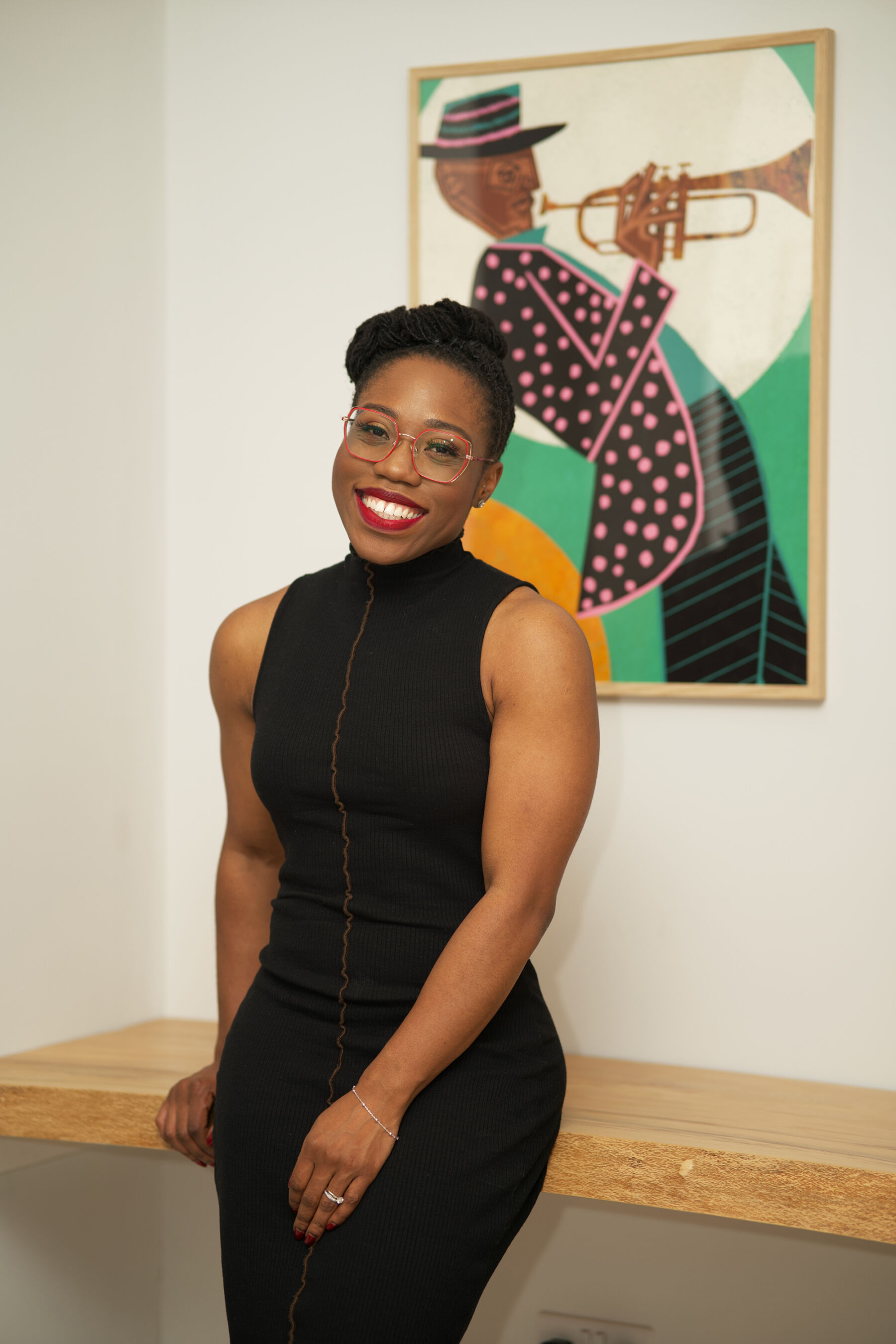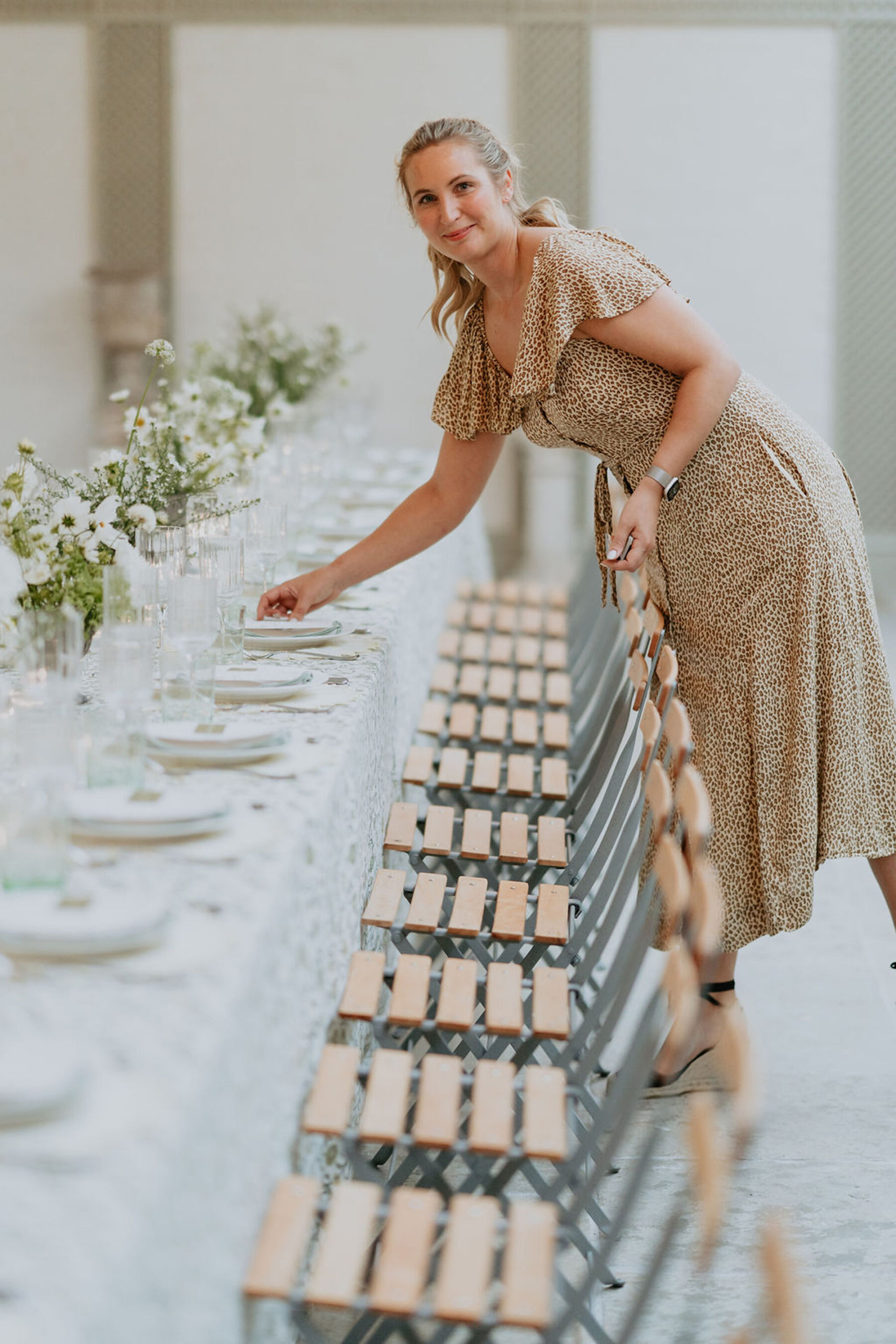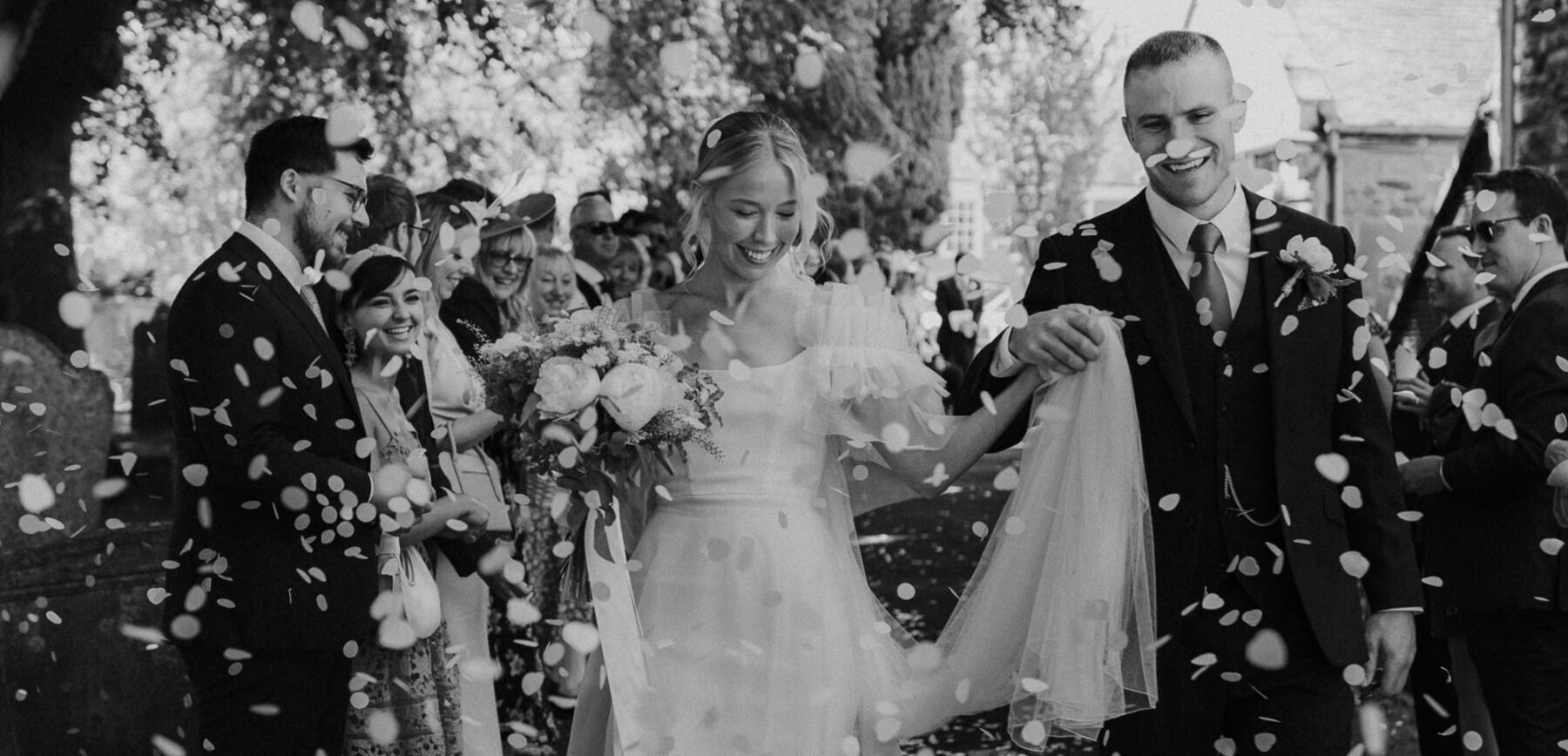Environmental stories are everywhere right now. David Attenborough, ‘Drowning in Plastic’ and the recent publication of scientific reports all paint a shocking picture that means we all need to take action to look after this spinning rock that we call home.
It’s relatively easy to make certain changes but is it possible to make similar alterations to your wedding plans? Can you have a sustainable, environmentally friendly wedding without having to compromise on luxury or ditching lots of elements that are important to you?
If we don’t ask for sustainable options, there’s no need for suppliers to offer them. If we don’t ask about the provenance of items and ingredients, it’s easier for less-than-ethical working practices to continue.
The answer, in short, is yes but for a longer, potentially more useful answer, I spoke to some brilliant wedding suppliers who are already playing their part in fabulous weddings that don’t cost the earth.
Let’s start with your venue and for lots of locations, creating a wedding venue that’s as sustainable and environmentally friendly as possible is becoming increasingly important.
[instagram url=https://www.instagram.com/p/BoeKfn5hiZ1/?hl=en&taken-by=elmorecourt hidecaption=true]
Gaynes Park in Essex, for example, uses wood from the carefully managed estate to hand-make fences and fire the Bio-Mass boiler plus they even select the Christmas tree that decorates the Mill Barn from their own woodland. Elmore Court is also on a journey to become a fully sustainable wedding venue.
“Our first job at Elmore Court was to create the perfect dining and dancing space and our rammed earth, soundproof eco ballroom, The Gillyflower, was a real dream come true,” says owner Anselm. “It was built from materials all sourced from our estate, the flowers on the roof have been specifically planted to encourage pollinating insects and bees which in turn help to pollinate the fruit orchards surrounding us.”
Elmore Court also features carbon neutral heating, sustainable wedding menus and even their preferred suppliers are encouraged to do their bit for sustainability too. The venue has also banned sky lanterns and plastic straws plus they’ve even teamed up with Whole World Water and now only provide water for guests in reusable glass bottles to cut down on plastic.
Travelling wedding venue, Wedding Yurts work to a ‘tread lightly and leave no trace’ mantra. They bring everything they need with them and they leave places and venues just as they found them. Substantial amounts are recycled and owner Lizzie and her team source as much as possible for each wedding from the surrounding area so they support small local businesses and suppliers at every event. Even the yurts themselves are made by hand from natural cotton and are then finished with eco products.
[instagram url=https://www.instagram.com/p/BlqL2ytBLL3/?hl=en&taken-by=weddingyurts hidecaption=true]
Catering is another BIG area but again, there are more and more ethical and sustainable options out there. Tom’s Feast is an organic wedding caterer, choosing ingredients that are Fairtrade and traceable or those that come direct from famers and producers if possible. 98% of their ingredients are British and come from within 100 miles of their kitchen which is a pretty impressive stat. They also design menus that minimise waste and they compost and recycle as much as possible.
Moving on to your wedding dress and this is definitely an area where you can inject a little sustainable style into your big day without any compromise on style or experience. The popularity of vintage has led to ever-increasing numbers of brides choosing to wear pre-loved gowns and Oxfam’s dedicated wedding dress shops have never been so busy. Specialist pre-loved boutiques and dress agencies such as Cambridge Vintage Bridal and Brides Do Good also ensure that lots of gowns go on to live another life rather than being packed away post-wedding. Brides Do Good even use up to two-thirds of their sales to fund charity programmes that protect the futures of millions of children who are at risk of early marriage and provide them with education and tools for a better future.
Of course, there are designers that have completely embraced the eco-friendly ethos and some, like Sanyukta Shrestha, have built their entire business around sustainable, fair trade and environmentally responsible principles. Sanyukta’s designs are made from natural and organic handmade fabrics that nourish the skin and she also works closely with the Nepalese communities who use traditional methods to make these fabrics.
[instagram url=https://www.instagram.com/p/BouWD88hpop/?hl=en&taken-by=sanyuktashrestha hidecaption=true]
“It is my aim to create opportunities for women in this area of the world, not only be raising awareness but also by ensuring that their traditions are upheld,” says Sanyukta. “Whenever I can, I love to make them smile by ensuring that they are continually able to do something that they love and enabling them to provide for themselves. This is how I feel that I have truly achieved something wonderful in my career.”
Of course, all wedding suppliers have a part to play too and when it comes to wedding flowers, there’s definitely been a big drive towards seasonal, British grown flowers but that’s not all as florist Kate Bellamy explains:
“I think it’s great that more couples are approaching their weddings with sustainability in mind and you can definitely go beyond seasonal and local flowers for your wedding. Use plants, even for table arrangements and pew ends for example, because you don’t have to stick to cut flowers. The great thing about plants is that you can gift them to guests afterwards so they have a living memento from you day.”
“Another area to think about is floral foam. A lot of the photos that you see on Pinterest and Instagram of big urn arrangements or tall centrepieces will have floral foam to hold the flowers in place. There’s currently much discussion about this product and a lot of florists are moving to foam-free floristry for a few reasons. The trouble is, foam doesn’t break down in landfill and one of the few ‘not so great’ components of the foam is formaldehyde which isn’t good for the environment at all. Look out for arrangements on Instagram that use the hashtag #FoamFree.”
[instagram url=https://www.instagram.com/p/BlYiybUHpIk/?taken-by=katebellamyflorist hidecaption=true]
Of course, the responsibility for making eco-friendly adjustments and alterations goes further and some photographers, such as Esther Wild, have totally embraced a more sustainable approach:
“From my own business perspective, I try to be as eco-friendly as possible, just like I do at home with simple swaps such as using the milkman, buying shampoo bars and really cutting back on plastic. I’m really picky about the materials that I use and even the little gifts that I give my clients. The USB and box company that I use plants trees for every order that I place and I’ve even switched my energy supplier to a totally renewable option – using so much energy for my job means it made sense to make that aspect greener too. The next big dream is to do all wedding travel in an electric car to reduce emissions. Basically, the busier I become, the bigger my footprint so I will reduce it in every way I can. The planet shouldn’t have to suffer for us.”
Esther now even has a clause in her contract saying that she won’t take part in, or photograph, certain activities including balloon or lantern releases or anything that could harm the environment or local wildlife by littering. Foil confetti, discarded sparkler wires and smoke bomb cartridges all cause problems long after the wedding day is over.
When you think of ‘easy’ sustainable swaps, your wedding stationery is likely to be one that springs to mind and more and more designers are offering green alternatives such as using recycled board, natural inks and even local, independent printers. For example, Paperchain use 100% sustainably sourced cardstock and also bamboo card, which is a great sustainable option. Paper Tree produce handmade, ethical and sustainable paper flowers, gifts, stationery and decorations whilst Artcadia use vegetable based inks.
Artcadia also recycle their offcuts and printing plates. Not only that but they recycle as much packaging material as possible and even donate surplus paper to a local school and nursery. If you’re looking to make a change with your stationery, look out for FSC certified paper and even packaging that’s fully biodegradable and compostable.
Another area to think about are your rings because choosing carefully here can make a big different to the environment and miners and their families, as goldsmith and jewellery designer Shakti Ellenwood explains:
“I believe in the importance of making my rings with Fairtrade gold so that they have a purity of provenance. In other words, I want to be sure that no person, animal or environment was harmed in the making of your rings and that they’re helping small-scale miners and their communities to work their way out of poverty. Fairtrade gold makes a big difference in the lives of these artisanal miners and their families and it protects the natural environment around the mine. You give small-scale producers a sustainable future with gold that’s full traceable and produced responsibly – each ring is a unique symbol of love that you can really feel good about.”
[instagram url=https://www.instagram.com/p/Be_KNIjnIK3/?taken-by=shaktiellenwood hidecaption=true]
When it comes to your jewellery, look out for conflict-free gemstones and Fairtrade metals that are fully traceable and sustainably sourced. You can also look about for the Provenance Pledge where designers, such as Joy Everley, commit to sourcing materials that treat people and the planet respectfully and responsibly and that look to creating ethical supply chains.
Even your guests can make a difference from car-sharing to your wedding or even forgetting a fast-fashion statement piece and going for something that limits waste as Ruth Guise, founder of Shibumi, explains:
“It’s important for consumers to remember that they have a choice when it comes to clothing. There are more ethical brands out there so before running to the high street, guests can look to smaller companies for their wedding attire – they’re sure to find something unique and more environmentally friendly.
For example, Shibumi designs clothes that are made to last with orders grouped into batches to reduce the company’s carbon footprint. They use ethical labour and recyclable packaging and give 10% to charity that feeds back into the local community. Most importantly, their clothes are made to last.
“When choosing wedding outfits, try to pick something that you know you’ll love forever,” says Ruth. “Make it an outfit that you’ll want to wear again and again rather than going for something that will sit in the wardrobe forever or worse still, end up in the bin.”
Finally, let’s talk about your honeymoon because we all know that hopping on a plane and flying half way around the world isn’t that great for the environment. That said, having something wonderfully special to look forward to after the big day is also important but rest assured that you can have luxury AND sustainability for your post-wedding holiday. The wonderful Canopy & Stars has some absolutely amazing options for you much closer to home and the vast majority include lots of eco-friendly goodness.
[instagram url=https://www.instagram.com/p/BouVoKunvCR/?taken-by=canopyandstars hidecaption=true]
Gosling Lodge for example was handcrafted by a local carpenter and Humble Bee features reclaimed interior details. The Loft at Pickwell uses solar powered central heating and lighting as does Damson, a cabin set in the heart of Elmley Nature Reserve where you can enjoy your off-grid experience in peace and seclusion. However, the Canopy and Stars collection also features super luxe options with wood-fired hot tubs, outdoor baths, luxurious furnishings and the ever-tempting option to toast marshmallows and drink champagne under the stars.
Ultimately, what will make the real change is you. If we don’t ask for sustainable options, there’s no need for suppliers to offer them. If we don’t ask about the provenance of items and ingredients, it’s easier for less-than-ethical working practices to continue. It does feel a little bit as if time is running out on this issue, the world is changing in ways that should make us sit up, pay attention and, most importantly, make changes. Don’t feel that your entire wedding has to become an homage to the environmental movement but do do something.
The start of your next chapter could become so much more.
Love,
Tamryn x
__________
Main image from ‘An Ethically Produced Dress For a Zero-Waste Wedding’ on Love My Dress. The bride wore Sanyukta Shrestha. Photography by Balti Remeliai.

